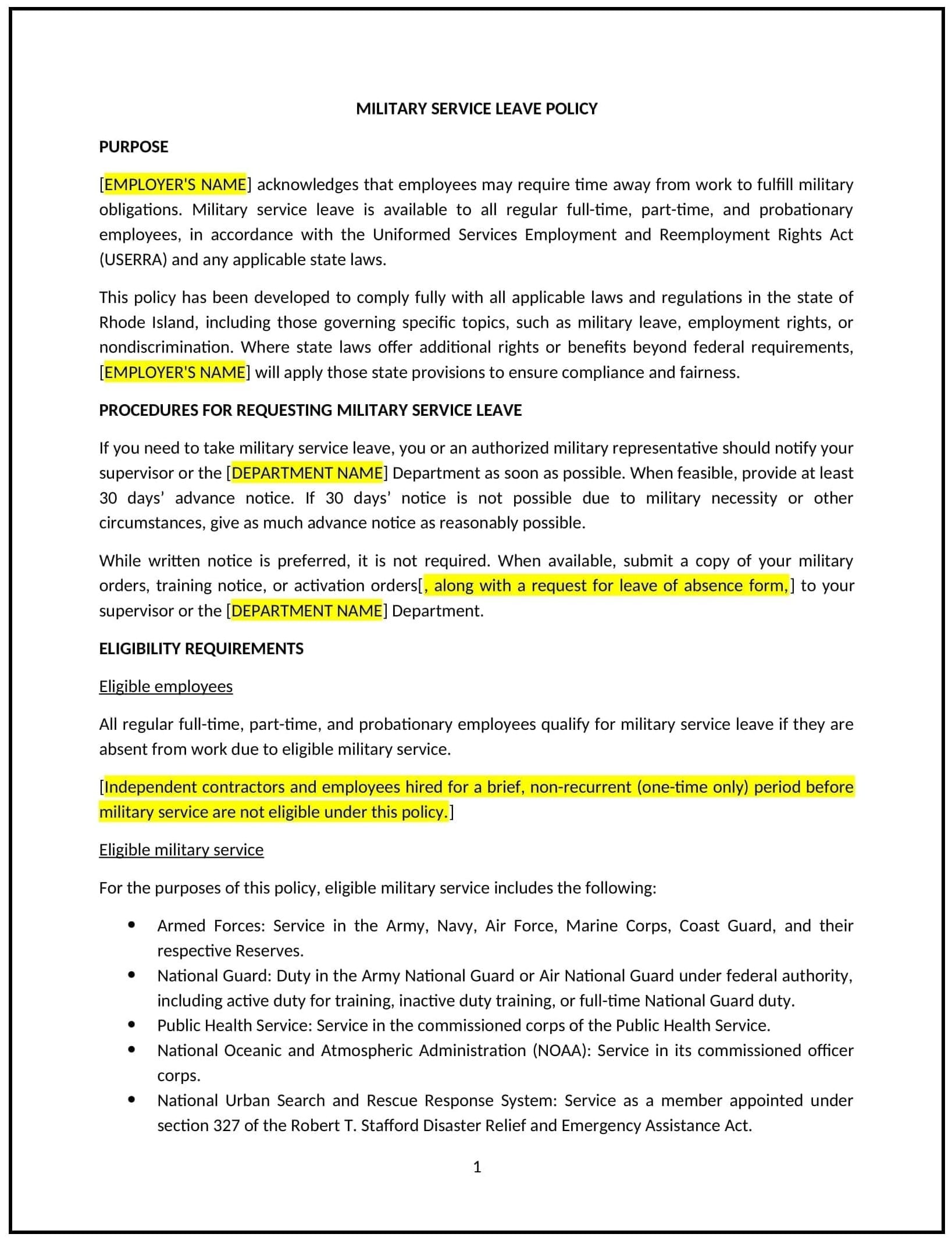Military service leave policy (Rhode Island): Free template
Got contracts to review? While you're here for policies, let Cobrief make contract review effortless—start your free review now.

Customize this template for free
Military service leave policy (Rhode Island)
This military service leave policy is designed to help Rhode Island businesses establish guidelines for employees who are called to active military duty. It outlines procedures for requesting leave, job protection, and benefits during military service.
By adopting this policy, businesses can support employees serving in the military, comply with legal requirements, and maintain positive workplace relationships.
How to use this military service leave policy (Rhode Island)
- Define eligibility: Clarify which employees are eligible for military service leave and the types of leave covered.
- Establish request procedures: Outline steps for employees to request military service leave, including required documentation.
- Address pay and benefits: Specify whether employees will receive pay, partial pay, or unpaid leave during military service.
- Ensure job protection: Guarantee that employees will return to the same or an equivalent position after military service.
- Communicate expectations: Share the policy with employees and include it in the employee handbook.
- Train managers: Educate supervisors on handling military service leave requests and maintaining workflow during absences.
- Review and update: Assess the policy annually to ensure it aligns with Rhode Island’s evolving labor laws.
Benefits of using this military service leave policy (Rhode Island)
This policy offers several advantages for Rhode Island businesses:
- Supports military service: Demonstrates a commitment to helping employees fulfill their military obligations.
- Maintains compliance: Aligns with Rhode Island laws and the federal Uniformed Services Employment and Reemployment Rights Act (USERRA).
- Enhances employee morale: Shows employees that their service is valued, improving loyalty and satisfaction.
- Reduces disruptions: Provides clear guidelines for managing military service leave, minimizing operational impacts.
- Builds trust: Fosters a positive workplace culture by supporting employees during military service.
Tips for using this military service leave policy (Rhode Island)
- Communicate the policy: Share the policy with employees and include it in the employee handbook.
- Provide training: Educate managers on handling military service leave requests and maintaining workflow during absences.
- Monitor compliance: Regularly review military service leave requests to ensure adherence to the policy.
- Address issues promptly: Take corrective action if military service leave requests are mishandled or denied improperly.
- Update regularly: Assess the policy annually to ensure it aligns with Rhode Island’s evolving labor laws.